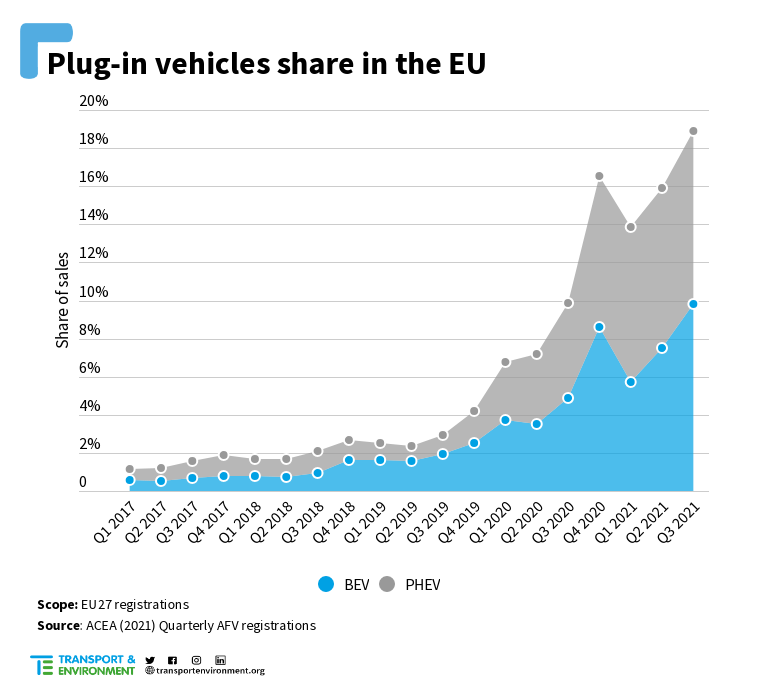Thanks to the entry into force of the 2020/21 EU car CO₂ standards, plug-in cars have entered the mass market much faster than previously expected, reaching 10.5% of new sales last year. This year the 95g CO₂ fleetwide target is applied in full – in 2020 it only applied to 95% of cars – and sales of plug-ins have surged to 16% of the market (7.5% BEV) and are projected to reach at least 18% by end of 2021. The application of the 95g target has also seen an unprecedented drop in CO₂ emissions of new cars, with a total CO₂ emissions drop of 18% since the entry into force of the 2020/21 regulation.

Regulating the car industry directly, European vehicle CO₂ standards are the main measure today to effectively increase the investment in and supply of plug-in cars. Smart taxation and infrastructure policies drive demand for electric cars, but the supply is still limited EU-wide by how many plug-ins carmakers need to make to comply with the CO₂ rules.
With competitive zero and low emission models now on the market, the next task of the regulation must be to scale up their production making them affordable and accessible to all Europeans, after which the regulation will need to ensure carmakers reach 100% zero emission sales in time for Europe to meet the ambition of its Green Deal.
Looking beyond 2021 however, the proposed car CO₂ standards regulation – adopted as part of the European Commission’s ‘Fit for 55’ climate policy package – will only slow the momentum and ramp-up of plug-in sales as the proposed ambition lags well behind the market potential and carmakers’ own plans. Without significantly more ambitious targets in the 2020s and 2030, and with numerous flexibilities and loopholes left in the regulation, there is a real danger that investment in and the supply of electric cars will stagnate from 2022 onwards, just as Europe needs to accelerate the decarbonisation of its road transport sector.
In this paper, T&E outlines our analysis of the Commission’s proposal, its shortcomings, and our recommendations to ensure Europe is both ‘fit for 55’ and for the emobility era.


